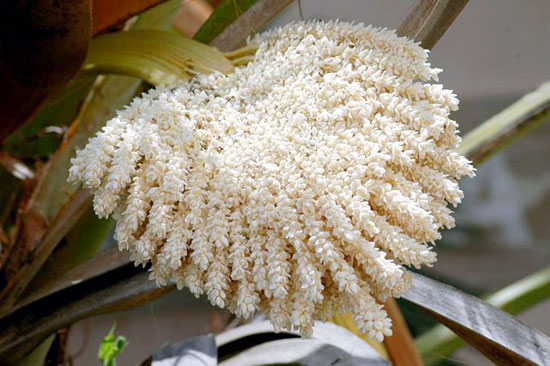Date palm pollen and seeds found to effectively stop antibiotic-resistant strains of bacteria
The date palm is well-known because of its fruit, mainly. The sweet, edible fruit is a staple in Middle Eastern dishes and even beyond. If the results of a recently published study are any indication, the tree may soon be recognized for its possible health benefits.

In the paper Studies on chemical composition and antimicrobial activities of bioactive molecules from date palm (Phoenix dactylifera L.) pollens and seeds, researchers from the University of Sciences and Technology Houari Boumediene in Algiers, Algeria, studied the chemical make-up of the tree to better understand how these components can be better utilized for human health.
The findings of their research were published in the African Journal of Traditional, Complementary, and Alternative Medicines.
Scientists are always on the lookout for new bioactive compounds. In recent years, developing countries have also studied the pharmacological traits of plant sources in order to adequately face the rapidly increasing issues on human health and environment.
“The therapeutic properties of plants have become an essential element of healthcare all over the world,” researchers wrote. “Consequently, new bioactive molecules merit consideration for their best therapeutic uses, such as antibiotics and antifungal medication, as well as to preserve the environment and people’s health.”
In addition to this, researchers pointed out that the number of drug-resistant bacteria is steadily rising. Thus, discovering new bioactive agents in these plants may give scientists an updated arsenal of tools to help fight these new drug-resistant strains.
In Algeria, one such case is the palm tree. It has been locally used to treat and prevent various diseases such as anemia, colds, and sore throat. In addition, parts of the date palm are given to people who suffer from demineralization (mineral loss in the body), and a cure for hemorrhoids, constipation, and jaundice.
For the study, various parts of the date palm, such as the seed and pollen, were tested to determine the bioactive compounds active in the tree. Further testing was conducted to identify the flavonoid content of the date palm, as well as evaluate its antimicrobial and antifungal properties.
Researchers discovered that date palms contain three flavonoids in its seeds and pollen — flavonic aglycons (flavonols and flavones), anthocyanidins and C-glycosylflavones. Studies have shown that these flavonoids contain antioxidants which combat oxidative stress in the cells and prevent the formation of harmful free radicals.
Moreover, date palm seeds also contain high amounts of oleic acid and lauric acid. Oleic acid, in particular, is known to kill carcinoma cells and reduce tumors. It also can reduce the risk of cardiovascular disease, as well as prostate cancer for men. Lauric acid, on the other hand, has bactericidal properties and can be used to treat acne in the skin.
The researchers also discovered that the seeds also contain butylated hydroxytoluene, a compound with a high level of antioxidant activity. They also discovered limited amounts of eugenol, a compound that is widely used in cosmetics and drug products because of its “antimicrobial, antioxidant, anti-inflammatory, anticancer, antipyretic, analgesic, anesthetic, and insecticide activities.”
With these results, the team posited that organic date palms contained various bioactive compounds that present various health benefits. While further studies are needed to accurately evaluate the efficacy of each, researchers believe that it unlocks other potential uses of date palms. They conclude that the study “give(s) an important value of these molecules for many applications related to pharmaceutical engineering and food industries using natural additives.”
yogaesoteric
January 23, 2020
